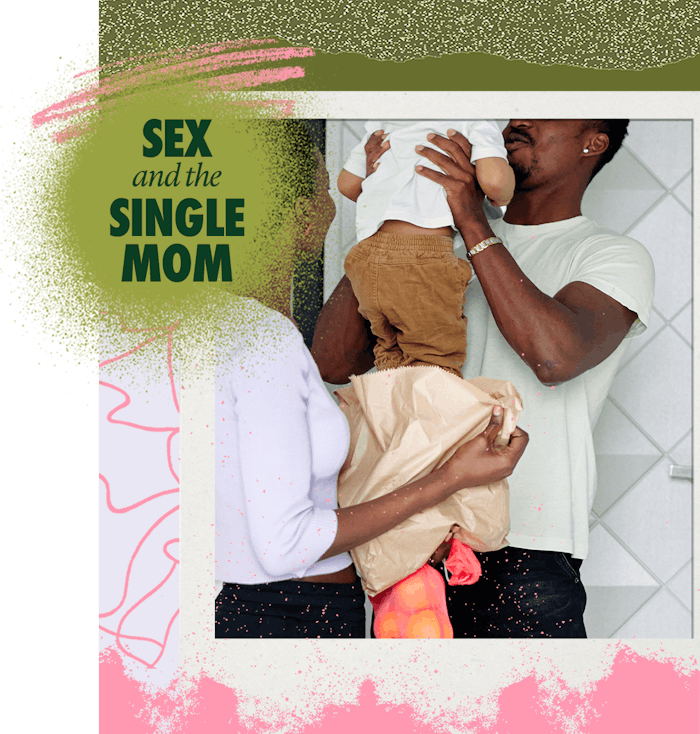Sex & The Single Mom

How To Date Someone Who’s Been Through A Complicated Divorce
Boundaries are your best friend.
I have dated divorced men in the past, and I have felt very conflicted when they talk about how financially screwed they got in the divorce. Like, I hear you but also… can I do a sit-down with your ex before I take a side? Is it possible to support the person I am currently dating — and actually really like — without siding with him on something that feels complicated?
First of all, the fact that there isn’t a genre of think pieces about this is wild to me. I was recently in a relationship with someone who was still in the throes of financial upheaval caused by a never-ending and very painful divorce. I honeymoon-phase loved him (aka he could do absolutely no honeymoon-phase wrong in my honeymoon-phase book — red flag central!) and because I had only heard his side of the story, I was 100% certain that his ex was robbing him blind. It wasn’t until I mentioned this to a divorced friend of mine who immediately called me out (thank you, friend!) that I realized how wrong I was to immediately side with him.
I had villainized his ex by default, which was something I assumed I would never do based on my ethos/experience/loyalty to women. My allegiance to him had blinded me to all nuance/gendered dynamics on both sides.
The fact is, divorces, breakups, deaths, and endings of all kinds are always going to be complicated. Our allegiance to a new person we might be dating does not mean that it is our job to undermine our lovers’ exes. And it certainly isn’t our job to get involved in their beef. Unless your partner feels unsafe, threatened, or has come out of an abusive situation, staying neutral is a sign of healthy boundaries, not a lack of support.
The fact is, divorces, breakups, deaths, and endings of all kinds are always going to be complicated and our allegiances to the people we’re dating do not mean that it is our job to undermine our lovers’ exes.
One of the most challenging and exhilarating things about dating in middle age is that everyone has baggage — everyone has stories, trauma, triggers. But hopefully we have also learned and grown as people and partners, and can communicate our wants and desires better than ever before. I would also hope that we are a little more understanding of the nuances of partnerships, family, and finances based on our own experiences navigating those things ourselves. That said, it’s easy to fall back into unhealthy patterns. Here’s what you should always remember:
1. Financial abuse is abuse.
A lot of primary breadwinners — regardless of gender — end up in a very difficult situation financially after divorce, and it isn’t abusive to be upset by that. (I happen to know several women who are still supporting very deadbeat partners post-divorce.) But I think it’s important to reiterate that we should all be wary of anyone who is weaponizing money against an ex and to look for the warning signs of financial abuse, which happens even after a marriage ends. You can read more about that here.
2. Listening is enough.
It is possible to validate someone’s feelings without launching into fight mode on their behalf.
3. You will never know the full extent of the story.
Every relationship is different and every breakup is complicated in ways an outsider will never fully understand. Which is why you’re absolutely right to feel like it isn’t your place to take a side. Remember that.
It’s very easy to acknowledge the importance of boundaries, but when you meet someone new and you’re doing that full-speed bonding thing, sometimes we forget those boundaries entirely. Which will either derail the relationship, your mental health, or both. While you can be a support system for someone, you do not want to be their only support system. And I say this as someone who really struggles with this — my love language is unconditional support, let-me-help-you, let-me-heal-you, let-me-make-everything-OK.
But it is not our job to make everything OK. And if something he is sharing with you makes you feel uncomfortable, you should tell him that. Honesty, transparency, and boundaries, while difficult, can and must be lovingly established. For the benefit of both of you.
And if he’s not cool with that? Best to know now!
I want to answer any and all questions you all have about the exhilarating, terrifying, and wonderful experience of dating and having sex with new people after becoming a parent. Send me your questions at rebeccawoolf@gmail.com.
Rebecca Woolf writes Romper’s Sex & the Single Mom series. She has worked as a writer for more than two decades, and is the author of two books, Rockabye: From Wild to Child, and the forthcoming All of This: A Memoir of Death and Desire. She lives in Los Angeles with her four children.